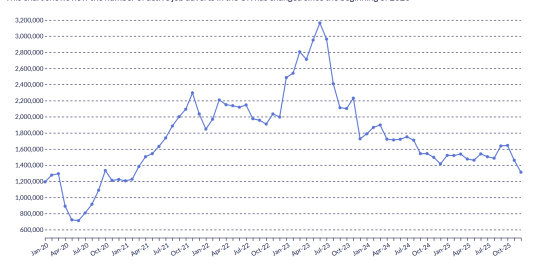- Permanent vacancies increase 29% year-on-year
- Financial Services and IT lead the way in jobs boom
- Salaries across all professional sectors were up by a robust 3.7% year-on-year
Professional recruitment firms now have 29% more vacancies on their books than this time last year according to new survey data from the Association of Professional Staffing Companies (APSCo). Its latest research comes as official figures reveal that that the UK was the G7’s strongest growing economy last year with GDP rising by 2.6% - representing the healthiest increase since 2007. In comparison, the US enjoyed GDP growth of 2.4% across 2014. The EY ITEM Club's winter forecast predicts that UK GDP will grow by 2.9% in 2015, up by 0.5% compared with its previous estimate in October.
Growth across the board with Financial Services and IT showing particular signs of strength
Beneath this headline figure, the January data from APSCo reveals that growth in the professional staffing market continues to climb across all of the trade association’s core sector groups. Permanent vacancies across finance & accounting and IT, for example, up year-on-year (17% and 31% respectively). This is in keeping with the Prime Minister’s vision that Britain will become the ‘jobs factory of Europe’, as he announces a series of manifesto commitments designed to reduce unemployment to the lowest among the G7 countries.
The trade association’s data reveals that Finance and IT are performing particularly well which can be attributed to a number of burgeoning areas. Looking at the former, growth can be largely credited to greater economic confidence and the resulting investment across this area. This is corroborated by research from the Confederation of British Industry (CBI) which found that Britain's financial sector reported the biggest upsurge in business since 1996 in the final three months of last year. Similarly, business group TheCityUK has recently revealed that London has more finance and professional services workers than ever before.
Looking more closely at the IT sector, much of the jobs growth has been around the ongoing investment in improving user experience. Organisations are increasingly investing in UX design as they strive to keep pace with rapidly advancing technologies and user expectations. The fact that it is now widely recognised that improved user experience has a significant impact on company performance suggests that this trend shows no sign of abating.
Salaries reflect vacancy growth
APSCo’s figures also reveal that median salaries across all professional sectors were up by a robust 3.7% year-on-year. This overall growth is characterised by notable fluctuations in terms of sector, with Engineering, Financial Services and IT recording uplifts of 10.5%, 5.3% and 2.8% respectively.
Ann Swain, Chief Executive of APSCo comments:
“As the UK takes the podium for the world’s fastest growing advanced economy, it is clear that this bright, fresh economic landscape will continue to have a positive impact on recruitment levels across the UK. The fact that vacancy numbers within Finance are once again showing significant signs of improvement reflects the reality that the recession is now well and truly behind us. It seems that London has undoubtedly regained its crown as one the most eminent international financial centres - and the value that brings to the UK economy should not be under-estimated. There is no doubt that the UK remains a world-leading place to do business. ”
John Nurthen, Executive Director, Global Research for Staffing Industry Analysts, which compiles the report for APSCo, comments:
“It’s reassuring that hiring trends for both permanent and temporary/contract staff have continued their strong momentum into 2015. While ongoing uncertainties regarding the broader economic climate remain, unemployment levels across Europe have been gradually coming down since Summer 2013 so there’s little reason for optimism to be dented as Spring approaches.”






